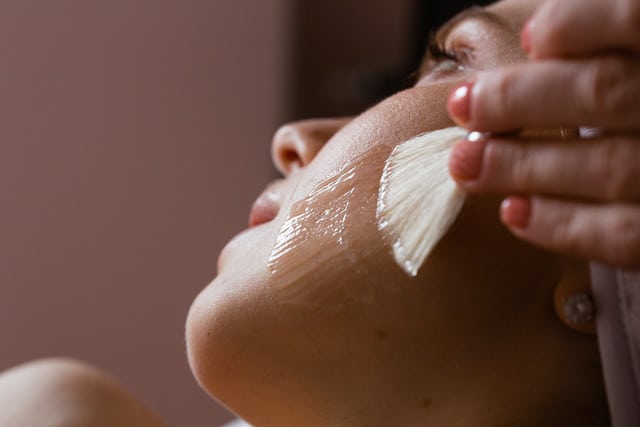You may be worried about getting a chemical peel if you have rosacea. Your sensitive skin is prone to flare-ups that may often be worsened by certain products or ingredients, and the last thing you want is to try and treat your skin only to have it backfire.
Don’t worry; there are chemical peels for rosacea that can help brighten and clarify your face without worsening the condition. What’s more, there is even some evidence to suggest certain chemical peels can minimize rosacea symptoms.
Are Chemical Peels Safe for Rosacea?
Yes, chemical peels can even help improve rosacea symptoms and minimize redness in some cases. Clinical research suggests that peels containing supramolecular salicylic acid (SSA) may be an effective ingredient for treating rosacea with chemical peels.
SSA is a beta hydroxy acid (BHA) that is good at minimizing inflammation; it also has antioxidant and antimicrobial properties that can be great for sensitive, rosacea-prone skin.
Salicylic acid is also a superficial peel, meaning it only targets the top layer of your skin. This can make it an effective yet gentle exfoliant to remove the red bumps rosacea causes.
Furthermore, working with a dermatologist or licensed aesthetician can ensure your chemical peel is fine-tuned to support your skin without triggering rosacea.
Chemical Peels for Rosacea: Recovery Time
There is no extended recovery period for a chemical peel if you have rosacea. Skin heals in seven to 14 days after treatment. There may be some temporary redness as your skin sheds dead cells, but this will not last long.
We will make sure you feel completely comfortable during recovery and provide suggestions on how to take care of your skin after a chemical peel.
Care From Experts Who Understand Your Skin
The team at the Rendon Center for Dermatology & Aesthetic Medicine deeply values their patients’ time, health, and well-being. During your appointment, they will take the time to understand your experience with rosacea and recommend the right treatment options, including gentle chemical peels that may alleviate symptoms.
Please schedule a consultation with us in Boca Raton, FL, by calling 561-750-0544. You can also click here to book an appointment with your preferred provider on our website. We look forward to serving you.


